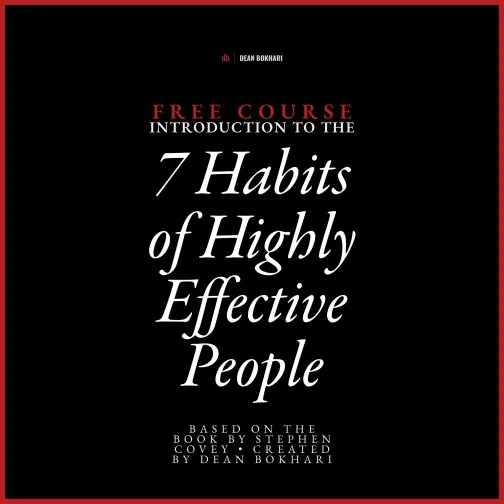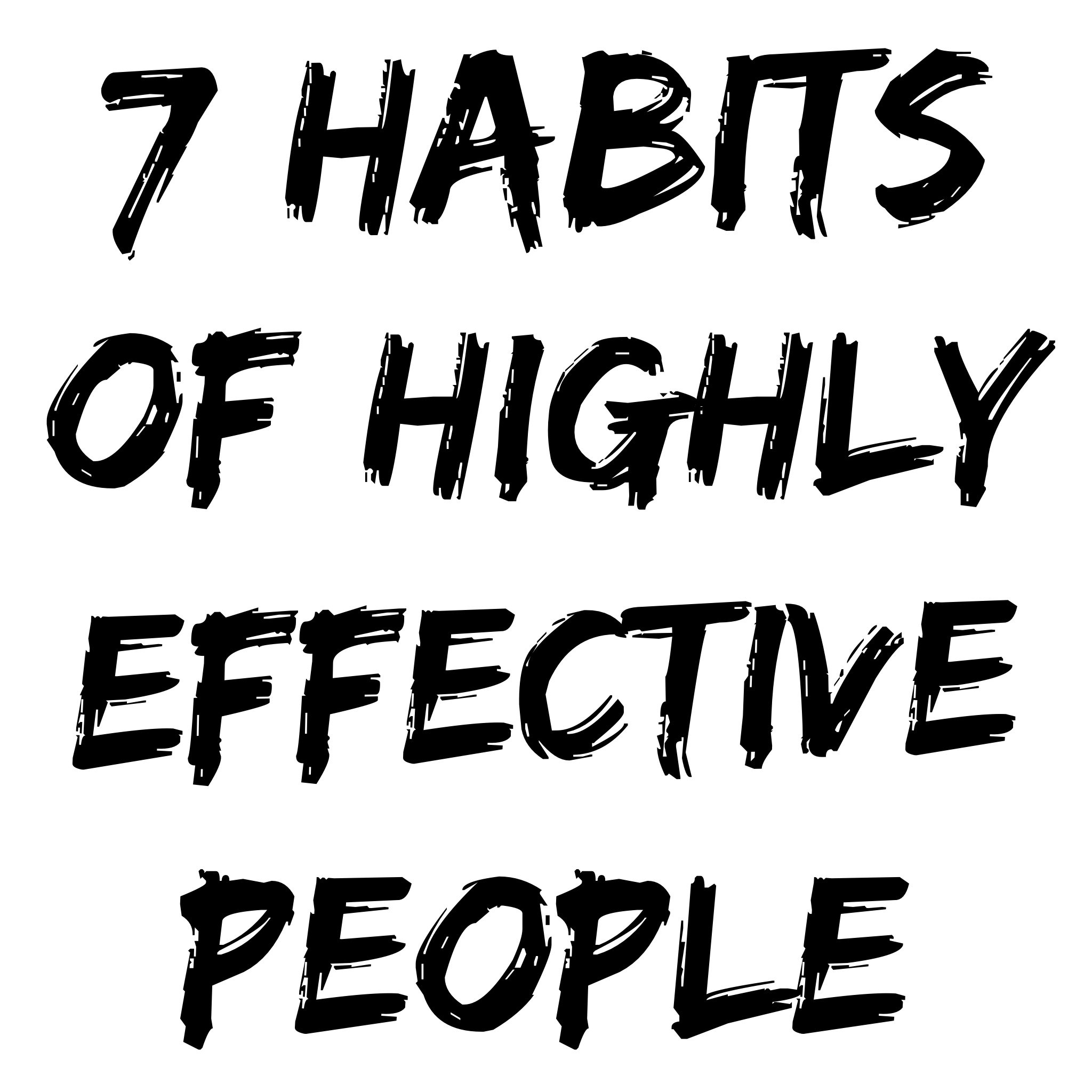The Guide to Developing Self-Discipline
Available versions: Article | Audio/Podcast

If you lookup the definition of self-discipline, you’ll usually see something like this: Self-discipline is the power to get yourself to take action regardless of whether you feel like it or not. Developing self-discipline requires a willingness and capability to act — regardless of your current emotional state.
All of this is true. But it doesn’t go far enough…
Self-discipline is more than simply doing stuff that you don’t want to do… Behind all of that surface-level stuff, there’s usually a deeper, more meaningful reason why you’re interested in developing self-discipline in the first place…
My definition of self-discipline goes like this: Self-discipline is about self-imposed, deeply personal, intrinsically-motivated behaviors repeated regularly enough such that they become part of your moral fabric, your code of conduct.
Throughout this article/podcast, we’ll be focusing on how to develop self-discipline based on the above definitions. By the time you’re finished, you’ll have three specific actions you can start taking today to develop the disciplines you need to achieve your goals and improve your life.
The Guide to Developing Self-Discipline
Listen for free on: Apple Podcasts | Spotify | Overcast
Let’s say you really want to discipline yourself to become an early riser.
Tonight, when you set your alarm clock to wake you up at 5:00AM, you’ve set a disciplined intention to rise at that specific time.
Now, when the alarm goes off the next morning, do you tap the snooze-button, or do you pop out of bed and begin your day?
At this point, some people may say, “But what’s five more minutes?“
Five more minutes means you’ve been unfaithful to yourself…
Your self-disciplined intention—that promise you made to yourself the night before to rise at five—is broken the moment you hit snooze.
You’ve started your day with a negative score.
And you’ve set the tone for more slips of self-discipline, to let more of the little things slide.
But the little things add up…
Which is why I’m here to say: YES—sometimes you do need to sweat the small stuff…
Because the small stuff prepares you for the big stuff.
How can you make a million dollars if you can’t make a thousand?
How can you workout five days in a row if you can’t workout for five minutes in a row?
You start with the little stuff, and work your way up.
You begin with one push-up, and if that’s all you can do then that’s all you can do. Tomorrow, you build on that.
And by next week, you’ll do three push-ups…The week after that, you’ll do five. And before you know it, you’ll be doing fifty push-ups in a row.
It’s staggering how big the little stuff becomes.
I’ll never forget the first time I walked into the gym to seriously begin lifting weights. I hoisted a 20lb. dumbbell over my head and it fell straight back down and hit me straight in the forehead. It literally almost knocked me out!
I was trying to do an overhead tricep extension, but I almost ended up laid-out and extended on the gym-floor.
So, I learned I had to start small, and work my way up.
So I picked up 5 lbs... A few months later, I was doing that exercise with 10 lbs. And now, several years later, I use 20lb. dumbbells to warm-up with. I’m telling you, it’s staggering how big the little stuff becomes.
Now let’s get back to the bed… Mind over mattress.
What if you actually jumped out of bed with energy and intensity the moment your alarm clock goes off?
Now you’ve set the tone for a day of disciplined action.
Oh, and by the way, it’s not about waking up at 5:00AM that matters, it’s about waking up at whatever time YOU promise yourself you’ll wake up that matters.
Self-discipline is about maintaining integrity between yourself and your own personal promises.
This one simple thing: getting up when you intend to get up—and doing it the first time—is both a small win and a big win at once…
It’s a small win because it’s a small and simple action: alarm goes off, you get up.
It’s a big win because it helps you gather the momentum you need to tackle the more challenging things you’ll come across throughout your day.
Self-discipline. It’s a skill so scarce in our modern-day culture—one in which people are both starving for attention and incapable of giving it—that being a person of self-discipline would be like having a f*cking super-power.
So how do you develop this super-power?
Here are 3 keys to developing self-discipline:
1. Imagine your ideal self.
This is the highest version of yourself. Who do you want to be? What do you want to do, experience, and have? How do you want to live your life? What contributions—small-scale and large-scale—do you want to make in this world? What kind of work does your ideal self do?
- What would your life look like if you were to become the ideal
version of yourself… 10 days from now? 10 weeks from now? 10 months from
now? 10 years from now? Why do you want to become this person?
- Answer these questions in writing. Once you’re done, you’ll have described your ideal self with clarity. Now you have a goal to strive towards.
2. Describe and envision the behaviors and practices associated with this ideal version of yourself.
What disciplines must you develop to live in the shoes of your ideal self?
- Physical fitness disciplines: (ex: exercise 5 times a week)
- Intellectual / mental disciplines: (ex: read a book a week)
- Emotional
/ social disciplines: (ex: weekly date day with wife)
- Spiritual disciplines: (ex: meditate 10 minutes per day; attend church/mosque/temple/synagogue weekly)
3. Transform your disciplines into habits.
Self-discipline is a simple game, but that doesn’t make it an easy one…
- Whenever you begin a new discipline, you will struggle at first. Keep going. Keep on performing the actions and behaviors associated with your ideal self with intensity and consistency, and with energy and enthusiasm, until these practices transform from “hard to do”, to “hard not to do.” For example: I used to hate working out, it was hard to do. But once I developed the self-discipline to workout everyday, it became hard not to do.
- When you work on a discipline hard enough, and for long enough, it eventually becomes a habit. And habits put action on autopilot.
LIVE LIKE YOU GIVE A DAMN,
Dean Bokhari
- If you find the podcast helpful, please rate + review it on Apple Podcasts »
- Got a Self-Improvement question you'd like me to cover? Submit it here »
"Dean Bokhari's Meaningful Show is the Self-Improvement Podcast I've been
waiting for. It's actionable, inspiring, and BS-Free." —Brett Silo
✨ New Series: How to Become an Early Riser
- Discover key methods to make early rising a habit
- How to wake up early + energized every morning
- Morning routines for health + success
Free self-development courses
👇
Tap on any of the courses below to start learning how to:
- boost your productivity (withGTD),
- get focused (with Deep Work),
- design a successful + fulfilling life (with The 7 Habits course),
- or learn the art of influencing others (with the How to Win Friends & Influence People course.)
All for free.
👇
Free life guides
👇
Best-selling Self-development courses by Dean Bokhari
Kill procrastination.
|
Get stuff done.
|
Get motivated.
|
Connect with anyone.
|
freshly pressed:
Top Audiobooks narrated by Dean Bokhari on audible
Book summaries
- The Power of Habit by Charles Duhigg
- 12 Rules for Life by Jordan B. Peterson
- Presence by Amy Cuddy
- Leaders Eat Last by Simon Sinek
- The ONE Thing by Gary Keller, Jay Pasan
- Deep Work by Cal Newport
Read or Listen to top Self-Help + Business Book Summaries in 20 Minutes or Less.
or







































